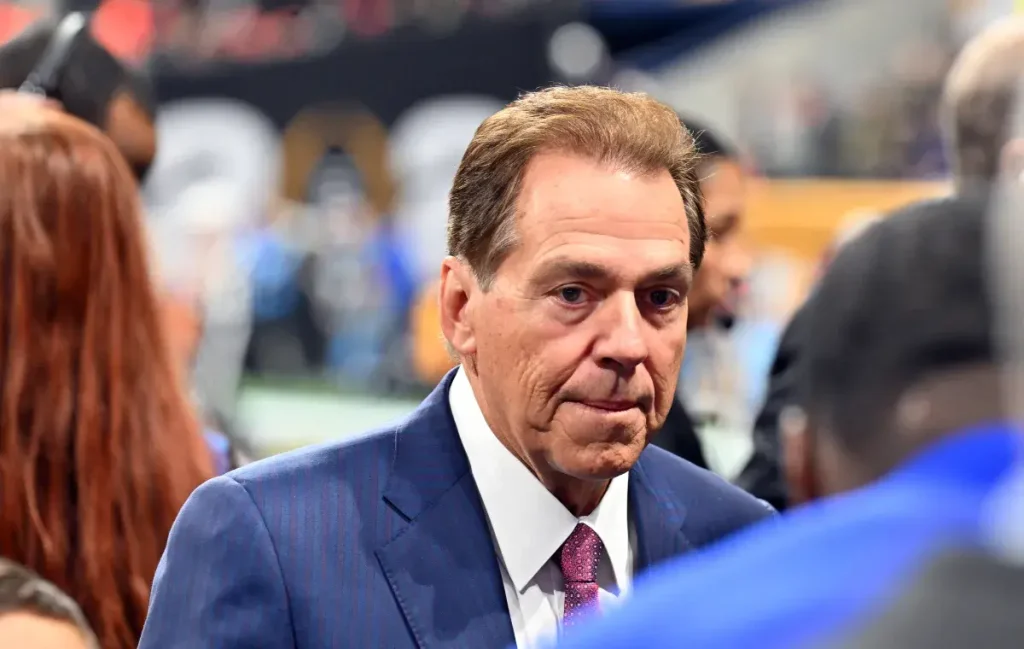LSU Tigers’ Future Under Scrutiny: Saban Questions Program’s Adaptability
In the wake of Brian Kelly’s abrupt firing after a 5-3 start to the season, the LSU Tigers football program finds itself at a crossroads. The decisive 49-25 home defeat to Texas A&M proved to be the final straw, leaving fans and analysts wondering about the future direction of this storied program. On Saturday’s “College GameDay,” former LSU head coach Nick Saban – who led the Tigers to a national championship in 2003 during his tenure from 2000-2004 – offered his perspective on the program’s current challenges, and his assessment was sobering for the LSU faithful.
Saban highlighted the rapidly evolving landscape of college football, pointing to transformative factors reshaping the sport: “You’ve got all these external factors that are constantly changing. Whether it’s the transfer portal, how much you can pay guys, revenue sharing, what kind of collective do you have?” His central question cut to the heart of LSU’s predicament – have traditionally prestigious programs like LSU successfully adapted to this new era of college football? His answer was a straightforward “No,” suggesting that the Tigers have fallen behind in adjusting to the sport’s changing realities despite their historical prominence.
The legendary coach expanded on this theme by questioning whether traditional powerhouses still hold the same appeal and competitive advantage they once did: “So what’s to say LSU, Florida – they’re traditionally the best jobs, but are they the best jobs now, relatively speaking, based on how they’ve adapted to the external circumstances that really affect your ability to be successful in college football?” This perspective challenges the conventional wisdom that certain programs maintain inherent advantages regardless of how college football evolves. Saban’s comments suggest that past reputation alone no longer guarantees future success – programs must actively modernize their approaches to recruiting, player compensation, and program management.
For LSU fans hoping for a miraculous return of Saban himself, the former coach dashed those dreams by clearly stating he would not consider coming out of retirement to coach at LSU or other similar blue-blood programs. His stance reinforces the reality that LSU must look forward rather than backward for solutions. The abrupt dismissal of Kelly, who was hired with much fanfare less than three years ago, demonstrates the increasingly impatient nature of college football and the heightened expectations at programs with championship pedigrees. Kelly’s firing, particularly mid-season, represents the kind of dramatic action that was once rare in college football but has become increasingly common as financial stakes and competitive pressures have escalated.
The Tigers’ situation exemplifies the broader challenges facing traditional powerhouses in today’s collegiate sports environment. The introduction of NIL (Name, Image, and Likeness) deals, transfer portal dynamics, and shifting conference alignments have fundamentally altered how programs must operate to remain competitive. Schools that adapt quickly and efficiently to these changes can leapfrog traditionally dominant programs that are slower to embrace new realities. LSU now faces critical decisions not just about who will lead their program, but about how they will structure their entire football operation to better compete in the modern landscape.
As LSU begins its search for a new head coach, they do so with the understanding that their next hire must bring more than just X’s and O’s expertise – they need a leader who can navigate the complexities of modern college football while honoring the program’s proud traditions. Saban’s candid assessment serves as both a warning and a roadmap for LSU and similar programs: adapt comprehensively or risk watching your traditional advantages evaporate in the face of more nimble competitors. For a program with LSU’s resources and passionate fan base, the potential remains enormous, but realizing that potential will require embracing change rather than resisting it. The Tigers’ response to this challenge will likely determine whether they can reclaim their position among college football’s elite or face a prolonged period of competitive uncertainty.















